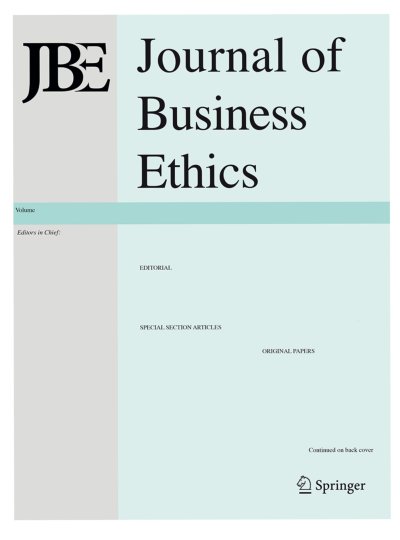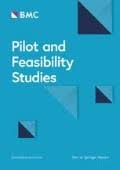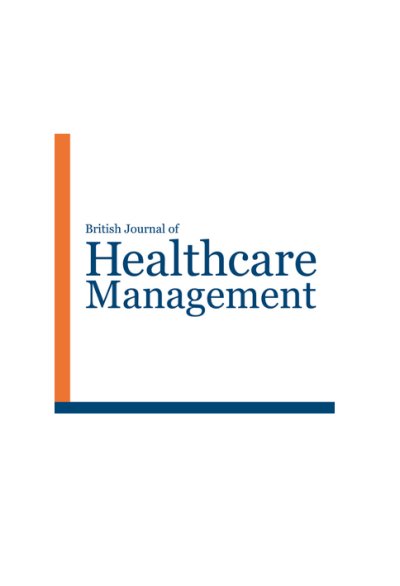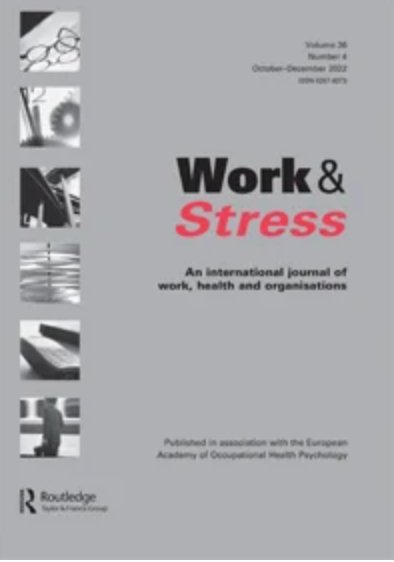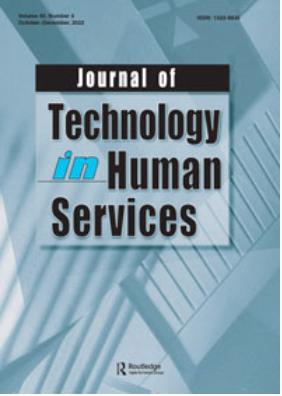Displaying 1 to 20 of 20
The work of people professionals has unique and difficult challenges such as managing conflict, undertaking redundancy and restructuring. People professionals are often the 'face' of such activities or programmes, even if they are not the decision makers. HR work may also involve advising on or supporting...
Manager–Team (Dis)agreement on Stress-Preventive Behaviours: Relationship with Psychosocial Work Environment and Employees’ Well-Being (JPEG, 4 Kb, 186x270)
Manager–Team (Dis)agreement on Stress-Preventive Behaviours: Relationship with Psychosocial Work Environment and Employees’ Well-Being
Sun, 28 Jul 2024
International Journal of Environmental Research and Public Health
The "Management Competencies to Prevent and Reduce Stress at Work" (MCPARS) approach focuses on identifying the stress-preventive managers' competencies able to optimise the employees' well-being through the management of the psychosocial work environment. Considering leadership as contextualised in...
Long COVID is a complex syndrome that affects many people previously infected with COVID-19. It has major implications for the workforce, contributing to sickness absence, impaired productivity and job loss. Karina Nielsen and Jo Yarker explain how a framework that combines support from managers, occupational...
An integrated approach to managing wellbeing in the workplace (PNG, 242 Kb, 390x602)
An integrated approach to managing wellbeing in the workplace
Tue, 23 Jul 2024
Edward Elgar Publishing
Mental health presents a major challenge in the modern workplace, and COVID-19 exacerbated this challenge. In this chapter, we propose the Integrated Organizational Mental Health Resilience Framework, a framework that outlines the steps needed for organizations to develop resilience against turbulence....
Working Patterns and Wellbeing (PNG, 242 Kb, 390x602)
This chapter discusses research on factors impacting wellbeing for three groups of employees with very different working patterns: business travellers, remote rotational workers, and hybrid workers. The chapter presents three studies, conducted with global samples between 2018 and 2021, which explored...
Webinar - It’s a rollercoaster – long COVID workers’ lived experiences adjusting to work
Fri, 12 Jul 2024
Click here to watch our webinar in collaboration with the Society of Occupational Medicine about long COVID workers' lived experiences adjusting to work.
If you want to find out more about working with long COVID, have a look at our guides with CIPD:
- Working with long COVID - guide for employees
- Working...
Increasing workforce psychological flexibility through organization-wide training: Influence on stress resilience, job burnout, and performance (PDF, 971 Kb)
Increasing workforce psychological flexibility through organization-wide training: Influence on stress resilience, job burnout, and performance
Tue, 2 Jul 2024
Journal of Contextual Behavioural Science
There is growing interest in the role of psychological flexibility as a potential resilience factor in workplace settings for protecting employees against the risk of job burnout. This field study contributes to the literature by investigating the utility of delivering brief ACT-informed training to...
“It’s Business”: A Qualitative Study of Moral Injury in Business Settings; Experiences, Outcomes and Protecting and Exacerbating Factors (PDF, 804 Kb)
“It’s Business”: A Qualitative Study of Moral Injury in Business Settings; Experiences, Outcomes and Protecting and Exacerbating Factors
Sun, 11 Feb 2024
Journal of Business Ethics
Moral injury has primarily been studied from a clinical perspective to assess, diagnose and treat the outcomes of morally injurious experiences in healthcare and military settings. Little is known about the lived experiences of those who have had their moral values transgressed in business settings....
The business case for investing in health and wellbeing
Thu, 8 Feb 2024
Taking an integrated approach to mental health and wellbeing brings gains to health, performance and retention. We provide a summary of the latest research and share cost calculations you can use to estimate the overall cost of poor mental health in your organisation. Our review shows that investing...
Protocol for a pilot cluster randomised controlled trial of a multicomponent sustainable return to work IGLOo intervention (PDF, 4.4 Mb)
Protocol for a pilot cluster randomised controlled trial of a multicomponent sustainable return to work IGLOo intervention
Sat, 3 Feb 2024
Pilot and Feasibility Studies
Long-term sickness costs businesses in the United Kingdom (UK) approximately £7 billion per annum. Most long-term sickness absences are attributed to common mental health conditions, which are also highly prevalent in people with acute or musculoskeletal health conditions. This study will pilot...
Using technology responsibly to manage people - A series of guides on how people professionals can lead on the responsible use of technology within organisations
Tue, 30 Jan 2024
Chartered Institute of Personnel and Development
Each guide focussed on the common uses of technology, as well as the benefits and risks across six key Human Resource areas:
- Recruitment and workforce planning
- Performance management
- Employee wellbeing
- Employee voice
- Learning and development
- Equality, diversity and inclusion
Through literature review, interviews...
Developing a competency framework for integrated care working
Fri, 5 Jan 2024
British Journal of Healthcare Management
In July 2022, a statutory requirement for all NHS and social care systems to be organised into integrated care systems came into effect. Integrated care systems are partnerships that bring together healthcare, local government and other agencies to collectively manage service planning, improve health...
Out Of Sight, Out Of Mind? A Literature Review Of Occupational Safety And Health Leadership And Management Of Distributed Workers (PDF, 3.8 Mb)
Out Of Sight, Out Of Mind? A Literature Review Of Occupational Safety And Health Leadership And Management Of Distributed Workers
Sun, 1 Jul 2018
Work & Stress
Distributed workers those who work autonomously and remotely from their organisation's main locations for at least some of their work-time are an important and growing proportion of the workforce that share common characteristics of temporal and spatial distance. Yet, many leadership styles and management...
Igloo: An Intergrated Framework For Sustainable Return To Work In Workers With Common Mental Health Disorders (PDF, 1.7 Mb)
Igloo: An Intergrated Framework For Sustainable Return To Work In Workers With Common Mental Health Disorders
Tue, 20 Feb 2018
Work & Stress
Current research on return to work (RTW) for employees with common mental disorders suffers from two limitations. First, research mostly focuses on the influence of resources during the absence period ignoring the resources which may facilitate sustainable RTW, i.e. employees continuing to work and thrive...
Factors Influencing Uptake And Use Of A New Health Information App For Young People
Mon, 1 Jan 2018
Journal of Technology in Human Services
When young people need health information they are increasingly likely to use online sources and health apps (applications). Yet, these are not necessarily well-designed, reliable or appropriate, and research has primarily focused on adult use. Our study is the first to use qualitative mixed methods...
Perceived Barriers And Facilitators Of Exercise And Weight Management At Work
Thu, 22 Jun 2017
International Journal of Workplace Health Management
The objective of this study was to examine employees' perceived barriers and facilitators of physical activity and healthy dietary choices, and managers' perceptions of how best to facilitate physical activity and healthy dietary choices among their team members.
Participants were employees from a large...
Developing Positive Leadership For Employee Wellbeing And Engagement: How Leadership Behaviours Impact Organisational Safety And Wellbeing (JPEG, 38 Kb, 300x431)
Developing Positive Leadership For Employee Wellbeing And Engagement: How Leadership Behaviours Impact Organisational Safety And Wellbeing
Sat, 1 Apr 2017
Wiley-Blackwell
'Developing Positive Leadership for Employee Well‐Being and Engagement' is a chapter in the book 'Leading to Occupational Health and Safety: How Leadership Behaviours Impact Organizational Safety and Well-Being', focusing on how leaders can promote wellbeing in their organisations and the positive...
Developing Managers To Manage Sustainable Employee Engagement, Health And Well-Being - Phase Two (PDF, 664 Kb)
Developing Managers To Manage Sustainable Employee Engagement, Health And Well-Being - Phase Two
Tue, 21 Feb 2017
CIPD
Sponsored by the CIPD, Institution of Occupational Safety and Health (IOSH) and the Affinity Health at Work Research Consortium, Affinity Health at Work has conducted research to review all the evidence available about what affects the success of developing managers who support employee engagement, health...
Line Management Competence: The Key To Preventing And Reducing Stress At Work
Tue, 1 Jan 2008
Strategic HR Review
Work-related stress is a major concern for employers, and the UK Health and Safety Executive has introduced Management Standards for employers to support them in managing stress in the workplace. Managers have a key role to play in minimizing stress-related risks for their staff. Management behaviour...
Management Competencies For Preventing And Reducing Stress At Work: Identifying And Developing The Management Behaviours Necessary To Implement The HSE Management Standards (PDF, 1.2 Mb)
Management Competencies For Preventing And Reducing Stress At Work: Identifying And Developing The Management Behaviours Necessary To Implement The HSE Management Standards
Tue, 1 Jan 2008
HSE
This report presents the findings of the second phase of a research project to identify the specific management behaviours associated with the effective management of stress at work. This phase aimed to: examine the usability of the 'Management competencies for preventing and reducing stress at work'...








